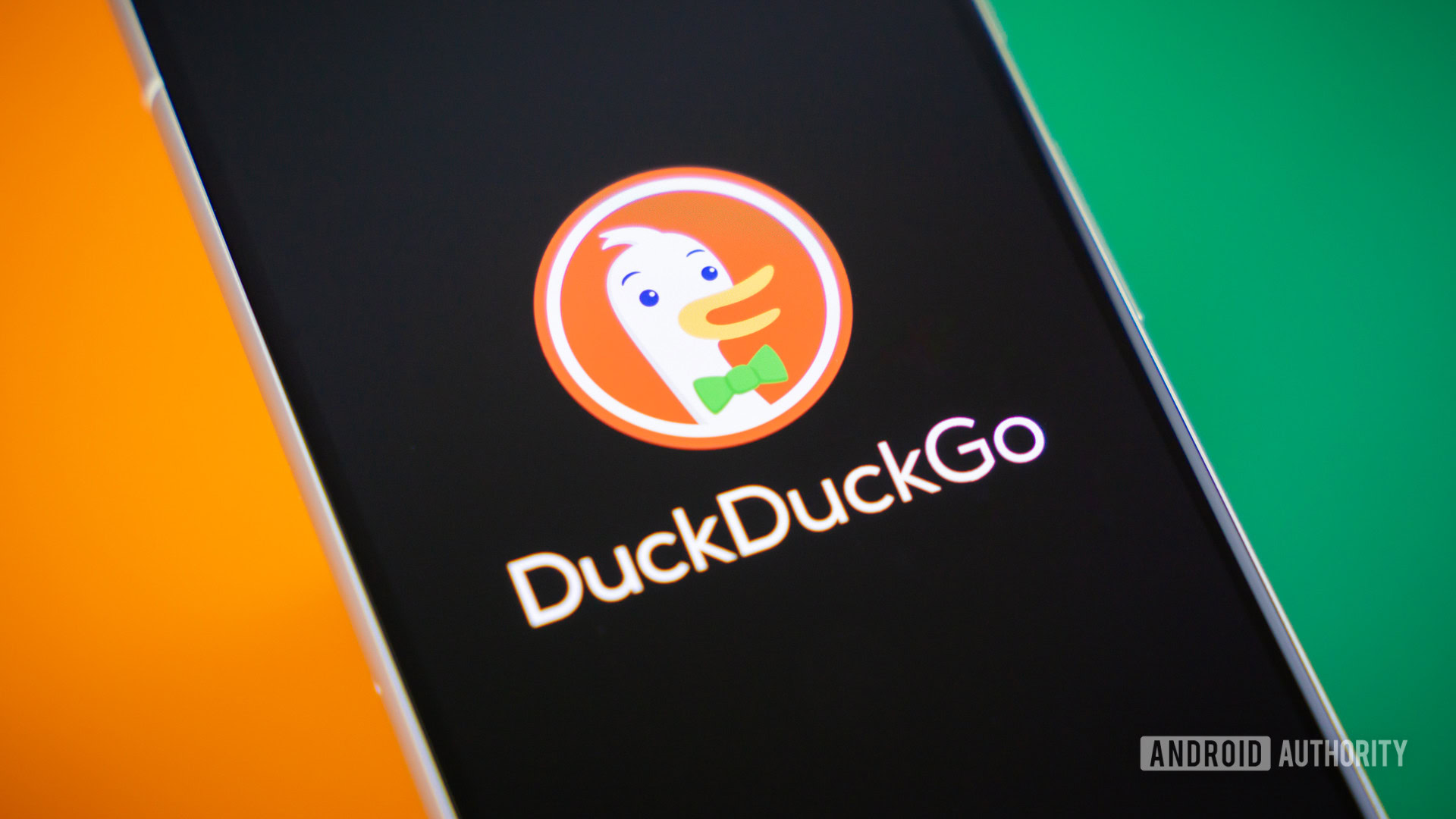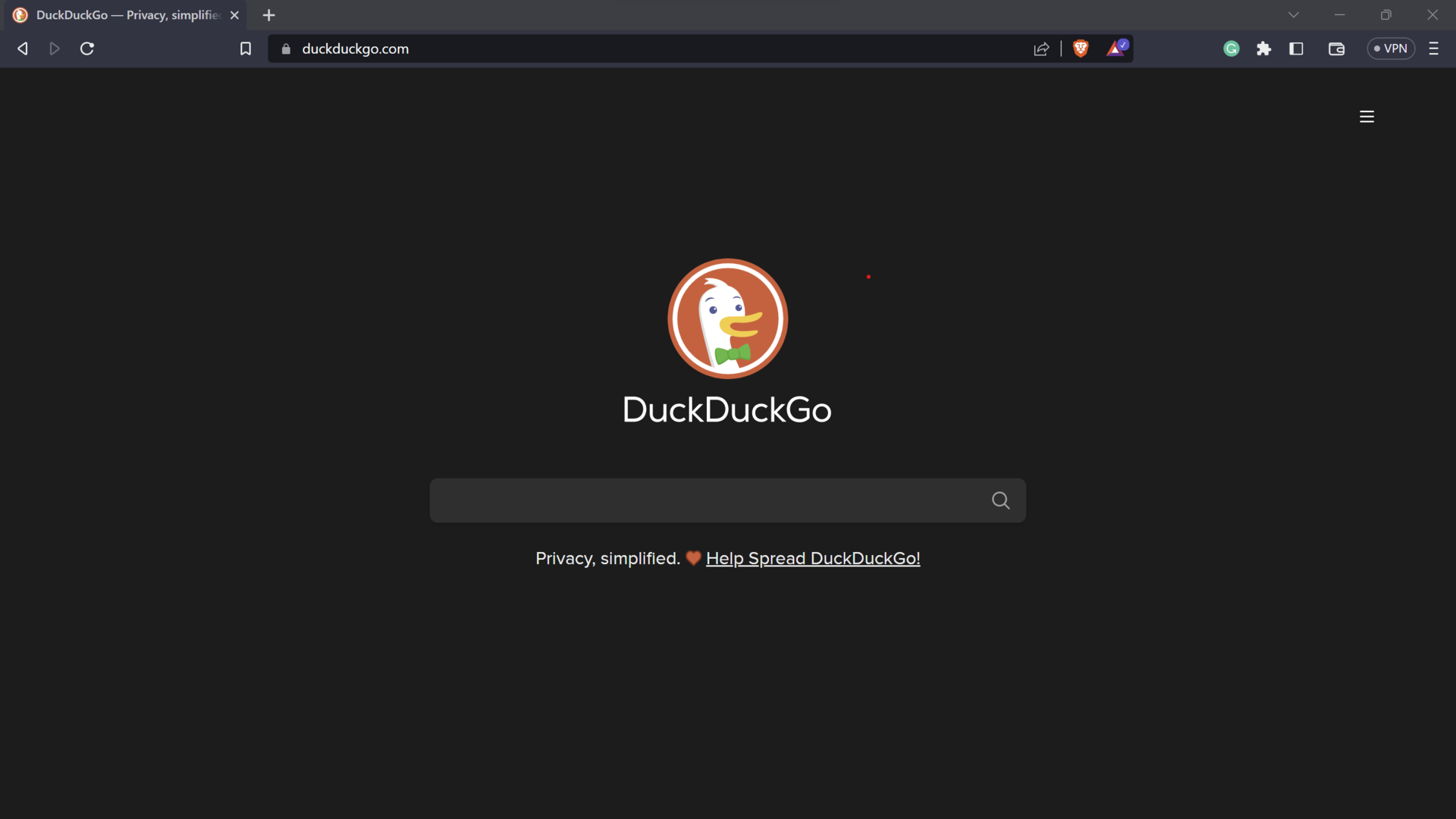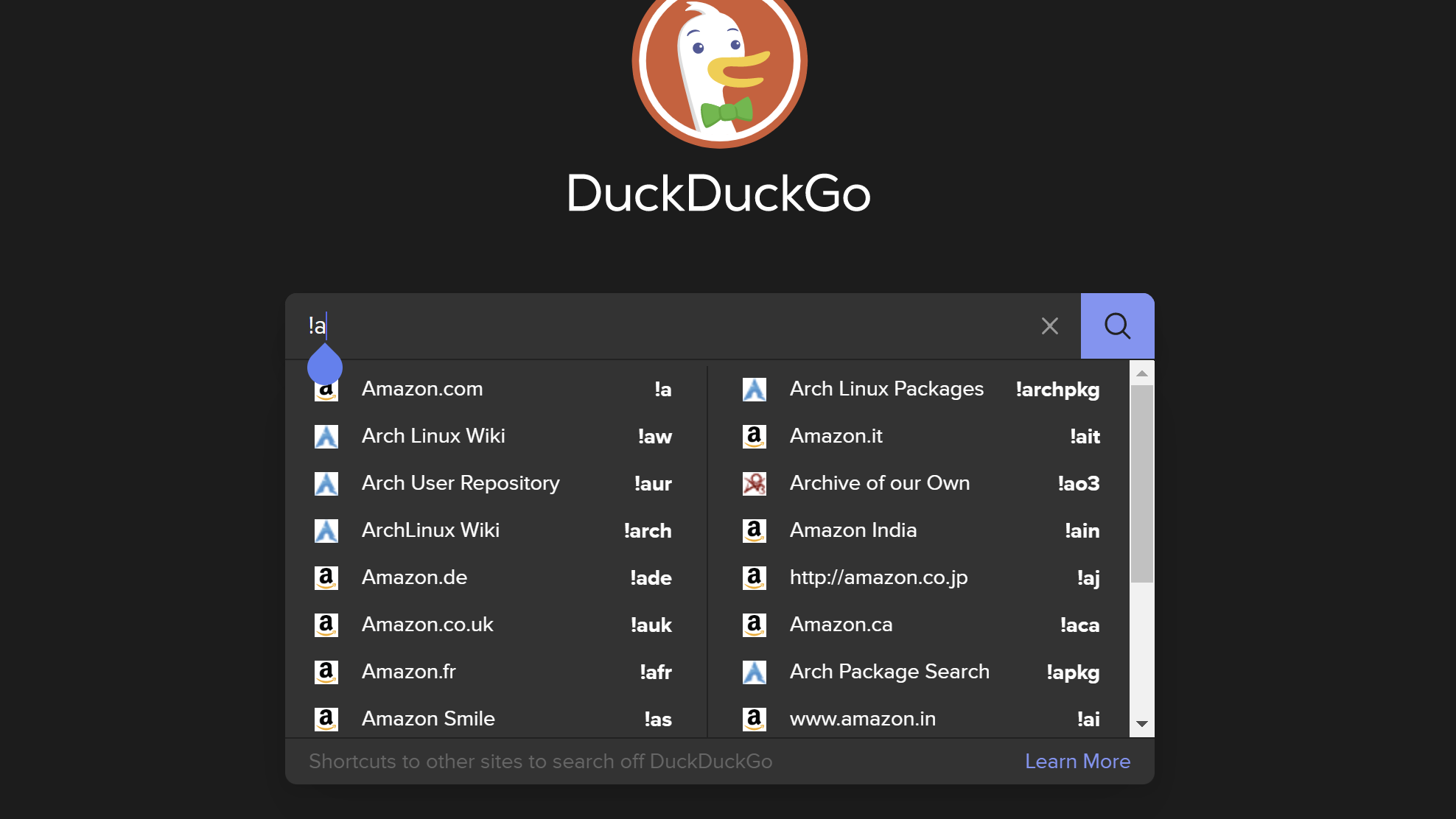Affiliate links on Android Authority may earn us a commission. Learn more.
What is DuckDuckGo? Exploring the search engine that doesn't track you
Published onMay 26, 2023

Most of us know (or don’t like to think about) how websites track and collect our data to sell to third-party sites or use for targeted advertising. Most of the time, this is harmless, like reminding you to buy that pair of shoes you left in your cart. Still, several big data scandals, such as Facebook’s Cambridge Analytica data breach, have left many wanting more online privacy. DuckDuckGo is one search engine that does not track your browsing history. Here’s everything you need to know about DuckDuckGo; what it is, how it works, and whether or not it’s right for you.
QUICK ANSWER
DuckDuckGo is a free search engine that does not track user activity, making it a more private but less personalized option. You can also use DuckDuckGo as a mobile app or browser extension.
KEY SECTIONS
What is DuckDuckGo?

DuckDuckGo is an internet search engine that prioritizes user privacy and avoids the filter bubble of personalized search results. You can think of DuckDuckGo as a stronger version of Incognito Mode that doesn’t track search history or store the personal information of its users. It also doesn’t use cookies by default. Additionally, it will show everyone the same results instead of prioritizing what is most similar to your search history because, well, it has none to reference.
Founded by Gabriel Weinberg in 2008, DuckDuckGo distinguishes itself from other search engines as a privacy-focused search engine. Since then, DuckDuckGo has expanded beyond the search box and launched mobile apps for Android and iOS in 2018 and a browser extension available on all major platforms.
DuckDuckGo is available worldwide. As it’s a web-based service, it can be accessed from anywhere with an internet connection. The search engine also supports multiple languages, making it accessible to a wide range of users around the globe. The search engine currently attracts over three billion monthly searches.
DuckDuckGo Features
DuckDuckGo has several notable and unique features that set it apart from other search engines. Let’s take a look at them.
Instant Answers

Similar to Google’s effort to provide users with immediate information, DuckDuckGo features Instant Answers atop the search page. These Instant Answers aim to provide users with the information they’re seeking directly on the search results page, eliminating the need to click through to other sites. Derived from third-party APIs or static data sources, these Instant Answers are created and maintained by a community of over 1,500 open-source contributors known as DuckDuckHack.
In March 2023, DuckDuckGo introduced DuckAssist to Instant Answers. Utilizing large language models from OpenAI and Anthropic, DuckAssist generates answers to users’ questions by scanning online encyclopedias, such as Wikipedia and Britannica.
Bangs

Another cool feature of DuckDuckGo is its “bangs.” Basically, users can directly search other websites by starting their query with an exclamation mark and the desired website. For example, you could type “!a shoes,” which will take you directly to the reach results for shoes on Amazon. Many bangs have short versions, such as ‘!a’ for Amazon or ‘!w’ for Wikipedia, and there are thousands more.
Tor access
In a commitment to anonymous searching, DuckDuckGo introduced its own Tor exit enclave in August 2010. This feature allows users to route their traffic through a series of encrypted relays for enhanced anonymity.
Customization
DuckDuckGo allows users to customize the appearance of search results with its theme settings. You can alter the colors, fonts, and even the search results layout, such as appearing as an infinite scroll or multiple pages.
How Does DuckDuckGo compare to other search engines?
While Google might be the most popular search engine globally, DuckDuckGo has carved out a significant niche in the market due to its simplicity and privacy features.
Google tracks user activity to personalize search results and ads, which can help you find exactly what you’re looking for. Still, it also means that your information is being collected and stored. DuckDuckGo, on the other hand, does not track user activity, which offers a more private, albeit less personalized, search experience, with the upside that the search results are less biased.
Compared to Microsofts Bing, there are the same privacy differences as with Google, but DuckDuckGo also has a simpler layout. There aren’t any news stories or images of the day features on the homepage, nor are there incentives to complete daily quizzes and searches for Microsoft Rewards points. Of course, it doesn’t have Microsofts new Bing Chat AI, either, but DuckDucGo has a limited AI in the form of DuckAssist that can search databases for answers.
Where does DuckDuckGo get its search results from? Well, from multiple sources, including Bing, Yahoo, Search BOSS, Wolfram Alpha, Yandex, and its own web crawler, the DuckDuckBot. Notably, it does not include results from Google. This is on purpose and intended to eliminate what the Co-Founder calls “content mills,” sites that are known to generate a large volume of surface-level content for the sole purpose of ranking high in Google. It also filters out pages that feature excessive advertising.
DuckDuckGo has image and video search functionalities similar to other search engines. When you perform a search, you can select Images or Videos from the menu at the top of the search results to view related media.
Is DuckDuckGo Safe?
Given its commitment to user privacy, DuckDuckGo is indeed considered safe. It does not store any personally identifiable information and encrypts all searches to protect user privacy. However, while DuckDuckGo doesn’t track your searches, the websites you visit might still collect your data. Read our guide to learn more about the safety of DuckDuckGo.
It’s essential to remember that while DuckDuckGo provides more privacy than many other search engines, it does not guarantee complete anonymity on the internet or prevent websites from tracking you through other means, like cookies. For complete online privacy, you would need to consider additional measures, such as using a VPN or one of the best privacy browsers.
FAQs
The name ‘DuckDuckGo’ is derived from the children’s game Duck, Duck, Goose. But instead of a Goose, you Go searching the internet.
Yes, DuckDuckGo is free to use. It does not charge users to perform searches or use its features.
DuckDuckGo makes money from private ads and affiliate partnerships. They do not profit from targeted ads based on user profiles.
No, DuckDuckGo does not track you. It does not collect or share personal information and does not store search history, or use cookies to track users.[
No, DuckDuckGo is privately owned and is not owned by Google. It is an independent search engine created in 2008 by Gabriel Weinberg.